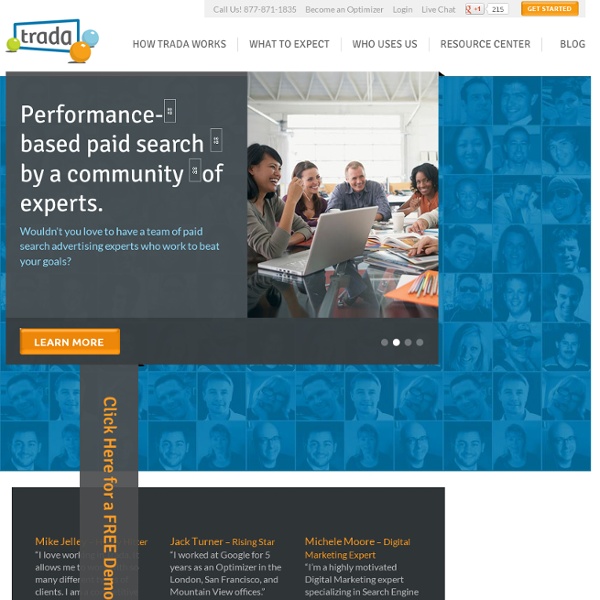



Spigit | Activate Your Crowd |Spigit Algorithms That Rule the Web Google helps us think, Facebook finds us friends, and Pandora plays our own personalized soundtrack. It's hard to say whether the computer algorithms that these services use to anticipate our needs and wants are turning us into puppets or geniuses. But algorithms have a huge impact on our tastes, buying habits, and decisions about our digital lives. Back in the 20th century--the primordial age of algorithms--life was simpler and harder at the same time. When we're looking for something online, Google's algorithm frees us from having to sort and search through multitudes of only not-very-relevant results. The technological trend toward ever-more-sophisticated algorithms isn't limited to situations where consumers seek information or products. For algorithm nerds, the Internet is a Candyland of data to model and predict behavior with. Here is a look at some of the algorithms that rule the Web--and those who use them. Google Search The News Algorithm The Social Algorithm
BoostCTR: Performance-Driven Ad Optimization for Search and Social Google+ Posts Will Appear on Google Social Search Results Google has started integrating Google+ users’ public posts into the search engine’s social search results, one-upping Facebook by wielding its search strengths to boost its fledgling social network’s features. The move is another sign that our social networking statuses are seeping into all other areas of the web. And, the feature is actually pretty useful if you’re looking for relevant results. This is an obvious and expected step, since Google already annotates results with results from shared social posts on services like Twitter and LinkedIn. It’s also a smart move as Google continues to try to siphon users away from Facebook and other services. As Google writes on its Inside Search blog, if you’re signed into your Google Account, your search results may start including annotations about those links being shared publicly by people you are friends with (or at least connected to) on Google+.
Strawberryjam Search Engine Land: Must Read News About Search Marketing & Search Engines Mzinga Why Measuring Marketing Performance is the Key to B2B Success When speaking to marketing directors and business owners, one of the most common questions I am asked is – ‘Is all of this measurable?’ We are living in a world where ROI is at the heart of every business process and marketing is not an exception. With the availability of tools such as Google Analytics and HubSpot there is a whole host of things that you can drill down and report on. Are you getting found? SEO is at the heart of helping organisations getting found. Related Resources from B2C» Free Webcast: The Future of Marketing: Social Listening + Action 1. After determining your most important keywords through keyword research, identify, say, your top 10 keywords. 2. Getting found for your brand name is important. Core industry termsLong-tallied termsProblem solution terms; That is, in addition to branded terms. Are you converting, once found? So, you have a well optimised website and are getting found by new people all the time. - CTA performance - Landing page conversion rates
Topsy - Instant social insight With iOS 9, Search lets you look for content from the web, your contacts, apps, nearby places, and more. Powered by Siri, Search offers suggestions and updates results as you type. There are two ways to use Search on your iOS device. Quick Search Drag down from the middle of the Home screen and type what you're looking for. Siri Suggestions Drag right from the Home screen to show Search and get Siri Suggestions. Get Siri Suggestions Siri Suggestions include apps and contacts that you might be interested in. You can use Siri Suggestions with iPhone 5 and later, iPad Pro, iPad (4th generation) and later, iPad mini (2nd generation) and later, and iPod touch (6th generation). Change search settings Go to Settings > General > Spotlight Search. From here, you can turn Siri Suggestions on or off and choose which apps to include in your searches. If you don’t want Siri or Spotlight to suggest nearby locations, go to Settings > Privacy > Location Services. Last Modified: